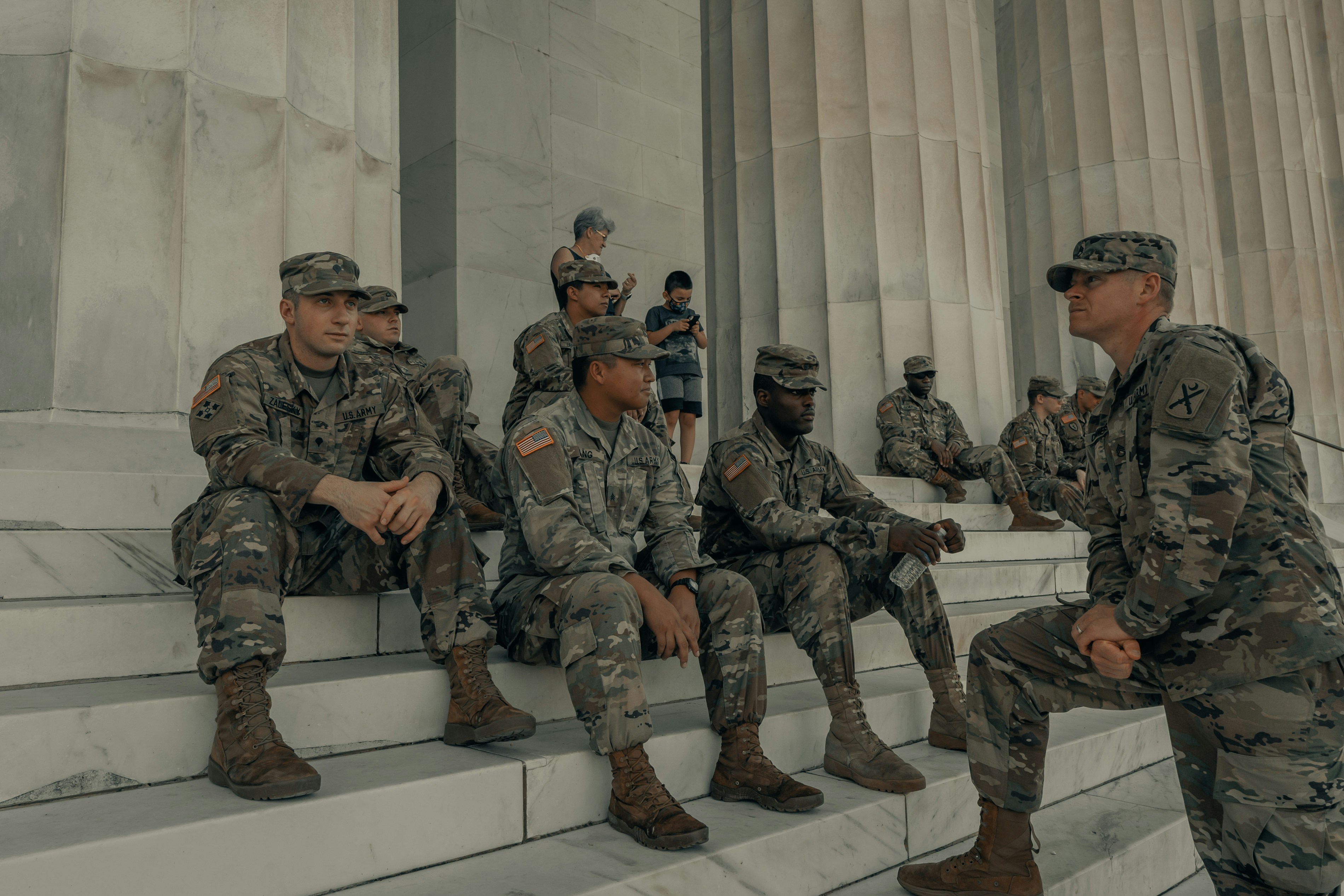Military Families Struggle as Shutdown Threatens Paychecks and Stability
Military families across the U.S. face financial strain and uncertainty, as the government shutdown threatens to delay paychecks for service members.
 President Trump And Pete Hegseth Address U.S. Senior Military Leaders At Quantico via Getty Images
President Trump And Pete Hegseth Address U.S. Senior Military Leaders At Quantico via Getty ImagesHeather Campbell lost her job working for a food bank over the summer. Due to federal funding cuts. Her husband, an Air Force officer, now faces the prospect of missing his next paycheck. Due to the ongoing government shutdown.
If lawmakers in Washington don’t act soon, Campbell’s husband will go unpaid on Wednesday. With little savings to cover their expenses. The couple expects to rely on credit cards to pay their mortgage and feed their three children. “You’re asking us to put our lives on the line or the people we love to put their lives on the line,” said Campbell, 39. Who lives near Maxwell Air Force Base in Alabama. “And you’re not even going to give us our paycheck. What? There is a lot of broken trust there.”

The nation’s third government shutdown in 12 years is again raising anxiety among military families. As service members continue working without pay. While they will receive back pay once the impasse ends, many families live paycheck to paycheck. During past shutdowns, Congress ensured continued military pay. But this time, with less than a week until the next payday, there is no guarantee.
“There are so many things that Congress can’t agree on right now,” said Kate Horrell. The wife of a Navy veteran. Whose D.C based company provides financial advice to military families. “I don’t want to assume that they’re going to be able to agree on this.”
When asked if he would support a bill to pay troops during the shutdown, President Donald Trump said, “That probably will happen. We’ll take care of it. Our military is always going to be taken care of.”
Rep. Jen Kiggans, a Virginia Republican and former Navy helicopter pilot, has introduced legislation to maintain military and Coast Guard pay. With bipartisan backing. But the House is adjourned until next week, leaving only two days before Wednesday’s scheduled payday.
Amanda Scott, whose husband is an Air Force officer in Colorado, said the uncertainty goes beyond finances. “How ready and lethal are you if you don’t know if you can feed your family?” said Scott, 33, of Colorado Springs. “A lot of these service members are highly skilled and can go out to make much more money in the civilian sector.”
For families trying to stay organized and resilient through deployments and shutdowns, durable gear becomes essential. Whether for travel, work, or long hours away from home. Many military families swear by the 5.11 Tactical Backpack Rush 72 2.0, a 55liter Molle pack built for field durability and multiple compartments. Ideal for service members managing life between duty and home.
Nonprofits and charities are offering relief for military families. Including interest free loans and financial assistance programs run by each branch. However, Heather Campbell said she and her husband cannot apply for a payday loan while refinancing their home.
“The opportunity to build up savings is really difficult on just one income,” she said. “I don’t know many military families that have a month’s worth of income set aside just in case, let alone multiple months’ worth.”
Jen Cluff, whose husband recently left the Air Force, said her family relied on food assistance during the 2019 shutdown. Even programs like the Special Supplemental Nutrition Program for Women, Infants and Children (WIC). Which supports more than 6 million low-income mothers and children, could run out of funding within weeks if the shutdown continues.
“If Congress hadn’t passed legislation to pay troops during the last shutdown, missing more than two paychecks would have been catastrophic,” Cluff said.
Shutdown effects are also being felt in heavy military regions like coastal Virginia, home to the nation’s largest Navy base. “Think about service members deployed right now,” said Rick Dwyer, executive director of the Hampton Roads Military and Federal Facilities Alliance. “They’re having to wonder if their families are going to be able to pay the rent, the childcare bills, the car payments.”
A Pentagon contingency plan notes that funds from Trump’s previous spending law could be used to continue military operations and possibly pay on duty troops. Though the Defense Department has not confirmed if that will happen.
The plan prioritizes border security, Middle East operations, and the Golden Dome missile defense program, while ensuring “childcare activities required for readiness” continue.
Raleigh Smith Duttweiler, of the National Military Family Association, said most child development centers on bases remain open. But she added, “Most service members pay for childcare off base. Last I checked, my kids’ babysitter doesn’t take an IOU from the federal government.”
















Conversation